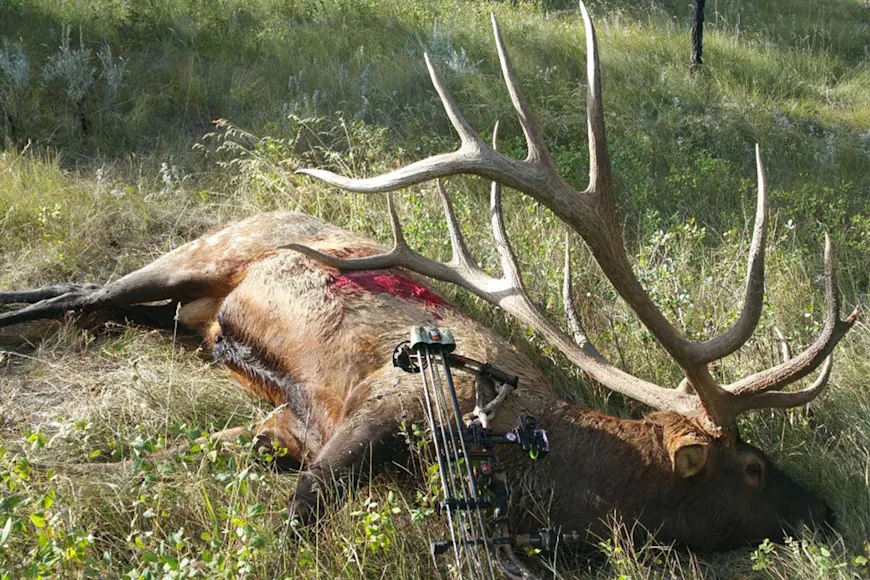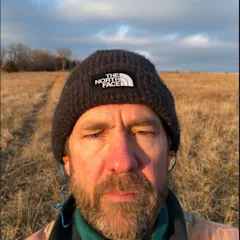Six years after tagging the largest typical elk ever killed with a bow, Steve Felix can still see his arrow hurtling toward the bull’s ribcage. Hunting federal land in eastern Montana on September 10, 2016, the Seeley Lake hunter had just spent 30 minutes watching the massive wapiti walk slowly within range of his bow. In the 15 seasons he and his hunting partner, Chad Tiffney, invested in learning the haunts and habits of elk in the area, it was the first arrow that Felix had ever flung.
“That’s the one thing that stands out to me, watching that arrow go,” he says. “I’ll never forget it.” In an interview with Field & Stream, Felix relives that memorable hunt, describes how the Pope & Young world record has affected his life, and shares the ups and downs of stewarding a renowned 430-inch rack—including the time it went missing just hours before his wedding.
The Hunt of a Lifetime
The first year Felix and Tiffney hunted the public land that would eventually yield the world record, they went eight days before laying eyes on an elk. “Lots of guys would have given up before then,” Felix says. But they were convinced the area could produce trophy bulls, so they continued to hunt year after year. Drawing a firearms/archery tag one season, both used rifles to harvest elk scoring in the mid-300s. With the combo tag in their pockets again in 2016, their goal was to make the Boone & Crockett book.
Normally they hunted together, but Tiffney was busy and Felix—who works for the Montana Department of Transportation in Missoula—needed to clear his head after investigating a fatal automobile accident. “I decided to make a quick run to see if I could find some elk,” he says, “so we’d have a lead when we went back.” Shouldering his pack in the parking lot before dawn, he heard elk bugling. It was a good sign. “A lot of guys want constant elk action, they want bugling, but this isn’t that kind of place,” Felix notes. “You hear an elk bugle in a day, that’s success.”
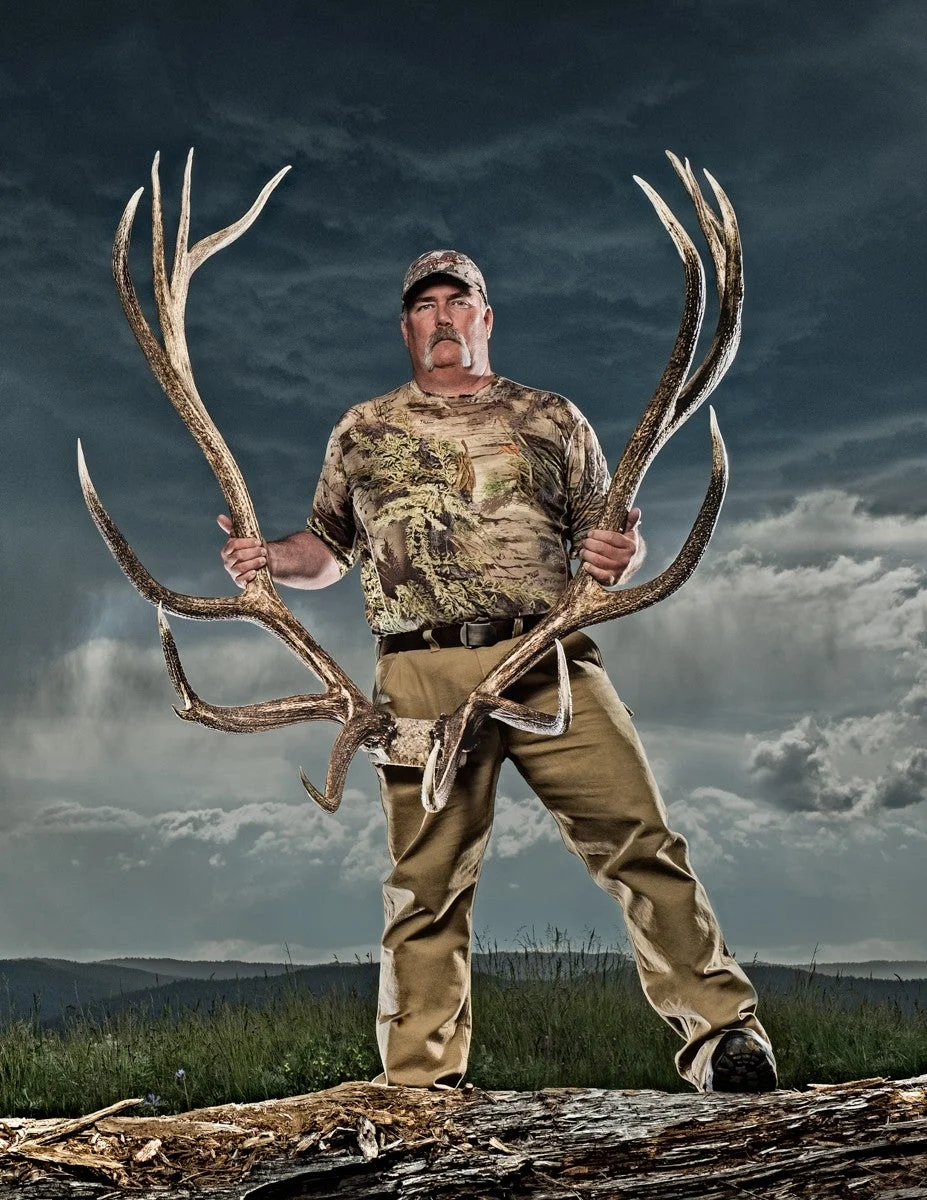
Hiking in, he heard more bugles and figured the bulls were heading for the same spot he was—a grassy bowl they favored. He got there by 8:00 A.M. and was about to shrug off his pack when an elk bugled nearby. He moved 300 yards downhill toward the call before it sounded again. “I put the binocs up, and it was like, ‘Oh, my! That’s a big elk!’” A huge bull was standing broadside 400 yards below, shredding a puckerbrush patch.
A 60-Yard Shot 15 Seasons in the Making
Another bull bugled above Felix. Though he didn’t see any cows, he knew where they bedded nearby. He expected the bigger bull to lead the smaller one away from the cows and figured he could use a finger ridge to move closer. He got to his spot, nocked an arrow, and peeked over the ridge: The bull was gone.
“I told myself to wait, he likes this spot, it’s cool and shady, he’s gonna come back. Five minutes later, I heard a bugle, looked into the bowl, and a hundred yards away the smaller bull is walking toward the top of the bowl. If the big one is still here, I thought, he’s gonna be right behind. Thirty seconds later the big one bugles and walks out all postured up behind the smaller bull. I said, ‘He’s gonna come to me. Don’t call, just let it happen.’”
Felix had shoulder surgery the year before and rehabbed hard to draw a bow again. Sixty yards was his outside range, and he watched through his rangefinder as the bull slowly closed from 100, finally standing broadside at 61, head down, feeding calmly. “I said, ‘It’s now or never, buddy.’ I made a clean draw, settled the 60-yard pin right where I wanted, and let the arrow fly.”
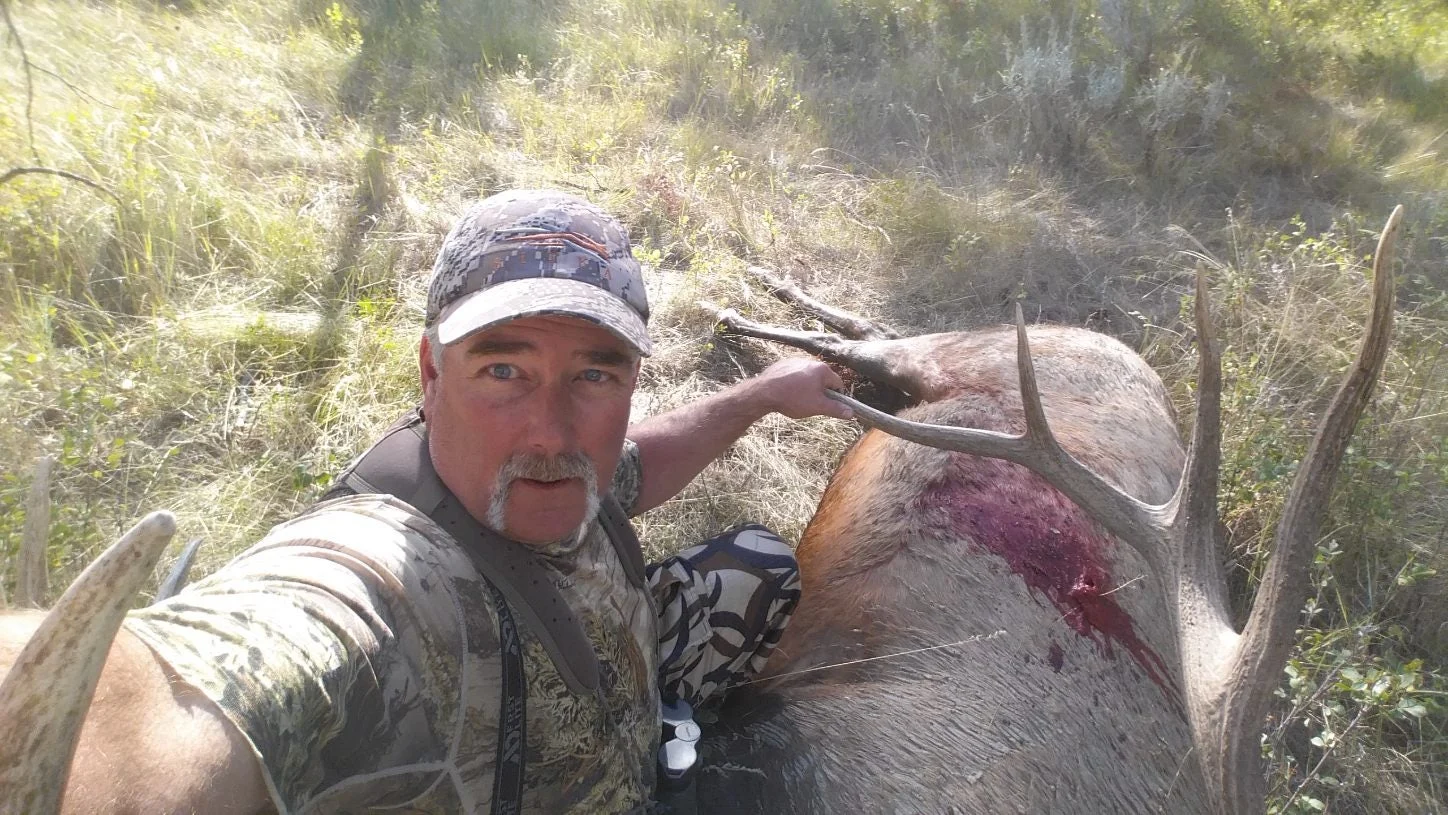
He saw the shaft buried to the fletching as the elk ran up the bank and stumbled briefly before disappearing over the rim. Thirty minutes later, Felix crested the hill to see massive antlers above the grass. “I’d always dreamed of killing a truly big bull,” he recalls, “and there he was laying. I knew it was an exceptional elk.”
A Rack for the Record Books
It would take some time for Felix to realize just how exceptional his bull truly was. He guessed the rack would score 380, but Tiffney thought it would go bigger. So did Felix’s taxidermist, whose conservative rough score tallied 390 inches before the spread credit was added. Boone & Crockett scorer Fred King taped the highly symmetrical rack around 447 gross, 430 net. The 60-day drying period produced almost no shrinkage: The official panel score was 430 even.
In 2017 Pope & Young awarded Felix its highest honor, the Ishi Award, a special bowhunting recognition for outstanding North American big game, noting that “the massive bull’s score, the Fair Chase hunt on public land, and the story behind how Felix harvested this exceptional animal all make this incredible trophy truly deserving.” Felix was just the 19th hunter to earn the Ishi since 1963, and only the third to win it for an elk.
“It’s a pure story and as pure a hunt as you’ll ever go on,” Felix says. “It wasn’t outfitted. It was a do-it-yourself hunt on public land, a story of persistence and getting to know the area.”
It’s also a North American wildlife conservation success story. “Everybody had their part: government agencies, biologists, managers, landowners and DIY sportsmen who live, breath, and eat hunting,” Felix says. He’s done his part to make sure that story gets told, loaning out the pedestal shoulder mount for public display at venues around the country—even turning up in person to tell the story himself.
Sharing the Trophy with the Public
During the two years the mount lived at the Rocky Mountain Elk Foundation in Missoula, Felix would stop by sometimes to touch it up. “I’d be working on it, and somebody would walk up and say, ‘Boy, that’s a big elk. Pretty impressive.’ And I’d say, ‘Yeah? You should have seen him when he was alive!’” After they figured out he wasn’t an employee, but the hunter who harvested the animal, he’d tell the story of the hunt.
“Overall, it has been a good experience,” he says. “I wouldn’t say it has changed my life, but it has enhanced it.” He sometimes gets recognized when he’s on the town, he’s experienced some jealousy here and there, and he knows some crazy talk has flown around the internet. But most people have been genuinely interested.
“It’s been fun. I wouldn’t say I’m super attached to it, but I enjoy it,” says Felix of the mount, which he hopes to find a permanent public home for someday. “It’s a historically big animal, and I feel like I have a responsibility to share it.”
Felix met his future wife shortly after shooting the elk—“I had a pretty good run of luck for about a week there,” he says, chuckling—and their 2019 wedding at his Seeley Lake home was one of the few times he prioritized private possession over public display.
“The mount had been at the Boone & Crockett Awards Banquet,” he recalls. “Cabela’s was shipping it, and they assured me it would get here in time for the wedding. But for 36 to 48 hours nobody could tell me where it was.”
Justin Spring, Boone & Crockett’s director of big game records, located the mount at a Utah distribution center and drove down to retrieve it, delivering the world-record rack the morning of the wedding day—much to Felix’s relief. “We had people flying in from all over the country, and we ended up having a great time,” he says. “But not knowing where the mount was for a while, that was a little concerning.”
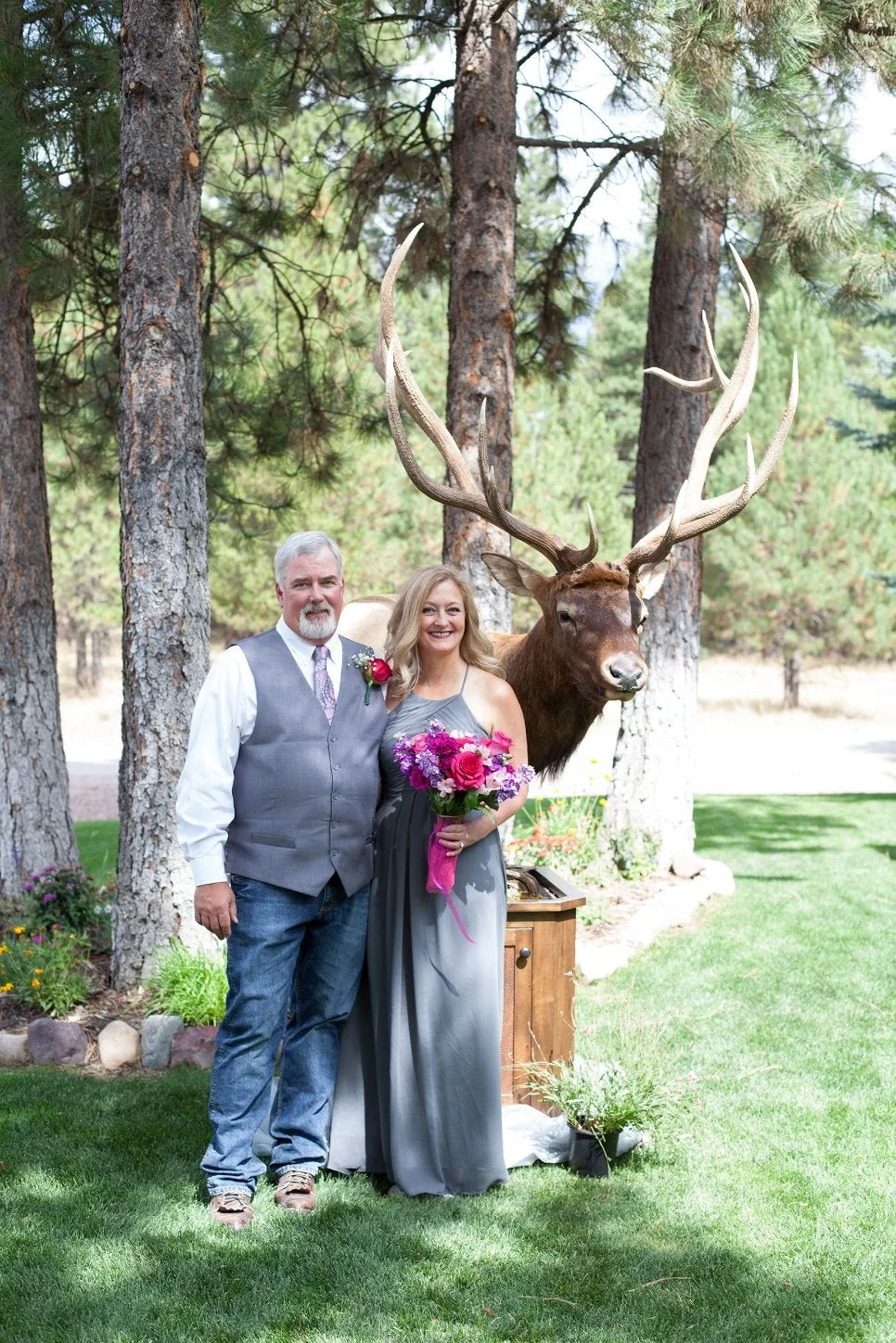
The archery world record for nontypical elk was reset just last year, after a Pope & Young panel scored Shawn O’Shea’s September 2020 Alberta elk at 449 4/8. Felix expects his record will be topped too. “I’m sure it will at some point. It’s kind of the golden age of elk hunting. There are some huge elk coming out of Pennsylvania right now. If I was to pick a place—I’d say Pennsylvania, Arizona, or maybe the area I was at in Montana.”
Read Next: The Biggest Archery Elk of All Time
How would he feel about ceding the spotlight to another hunter? “I’d be fine with that. It’s not something anybody has any control over. I’d be very congratulatory to the hunter. I mean, it’s neat to have the record. It’s fun. But good luck boys. That’s what I say. Good luck.”

